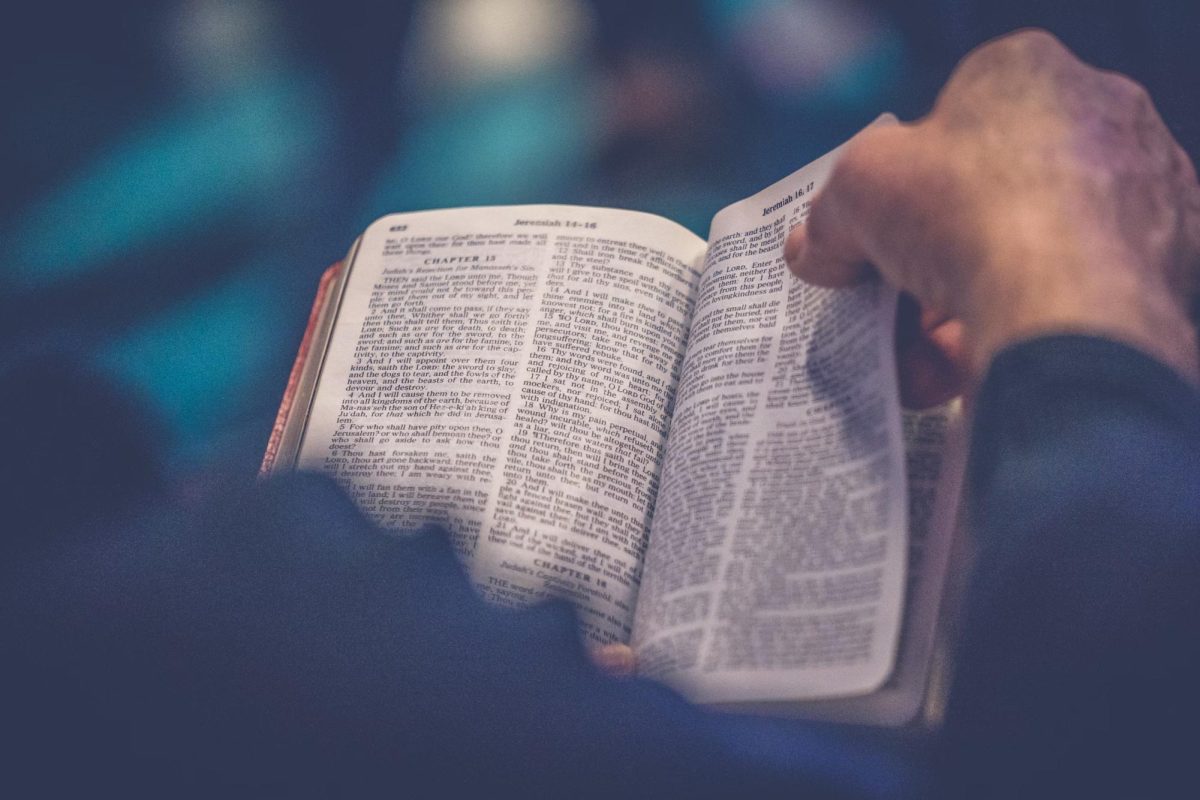I grew up in a Christian household. We were not the strictest household, but we did the usuals: prayers before bed, church on Sundays and not taking the Lord’s name in vain.
While in church, the preacher, who I perceived as the closest man to God in the room, told me that if I, a 7-year-old, sinned, then I was going to hell. This has always concerned me. I’m a child going to hell because of my sins? But the most important teaching from the Bible is that God loves us, and forgives us. Why would God be so vengeful as to send me — his creation that he loves so much that he sent his only begotten son to die on a cross — to hell for doing something wrong?
Some of my deepest conversations happen while I’m lying in my bed at 2 a.m., talking in the PlayStation voice chat. One night, I talked with two of my closest friends, Mike and Gabe, and like most nights, Gabe brings up religion to Mike, who recently converted to Catholicism. Gabe is looking for a religion and Mike isn’t necessarily courting him to Catholicism, but is telling the history of the religion and how it is rooted in the Biblical stories that relate to God.
Gabe brings up the killing of the Canaanites — a story in the Bible in which God commanded the people of Israel — his people — to attack the nation of the Canaanites. Killing, along with other violent actions, don’t exactly correlate to the rest of God’s teachings. So, Gabe asks about the morality of these actions and why God in the Bible commanded his creation to kill other elements of his creation. Mike responded, saying that God is infallible and his morality is what the morality should be.
I then chimed in and asked, “Well if God directs people to kill, and even if the killing was in the name of the Lord, and I disagree with those commands, then what would happen?”
“Then you’d be labeled an apostate,” Mike said.
Apostasy is considered a serious offense against God. Yet because of my morality of not wanting to kill other humans, I would be labeled as an apostate; a sinner.
Like the preacher who told a 7-year-old me that I was going to hell if I sinned, this discussion has resonated with me for years.
I wonder, “What kind of god is God?”
Is he a loving god? A hateful god? Is there a god?
I do not have an answer to any of those questions. But I do cling to my morals.
As Mike and Gabe continued their deep discussion about the stories and theories of morality of religion, I wondered, “Why do you need to research to find religion?”
I’m not saying that one shouldn’t study and look into a religion to follow it or not. But why in search of religion — which is meant to be the moral compass that people have lived, died and in some cases hope to live again for — have to come out of a book? It should be something that one feels, something that moves and pushes one to be better. Something that gives one comfort and answers.
According to The Pew Research Center, in 2021 29% of Americans identify as religious “nones.” I wouldn’t describe that as me. I don’t run from confronting religion, but at the same time I don’t think that I am “not religious.” I am comfortable with my stance in time. I do not feel I need to go out in search of a book that tells me I’m going to be damned for eternity, because I don’t think that’s true. I don’t have many questions, but I also don’t have answers.
I don’t know what happens when we die. I don’t know how we came to live on a planet that materialized out of an explosion to give us the most habitable conditions. And out of all the world religions, I don’t know which one, if any, are right.
What I do know is that I am alive, I have love and I am me. I know right from wrong, have strong morals and show compassion to others. I know I would turn down a request to murder other people, even if that request came from God.
Call me a sinner or call me an apostate, but I know that I’m enough.















